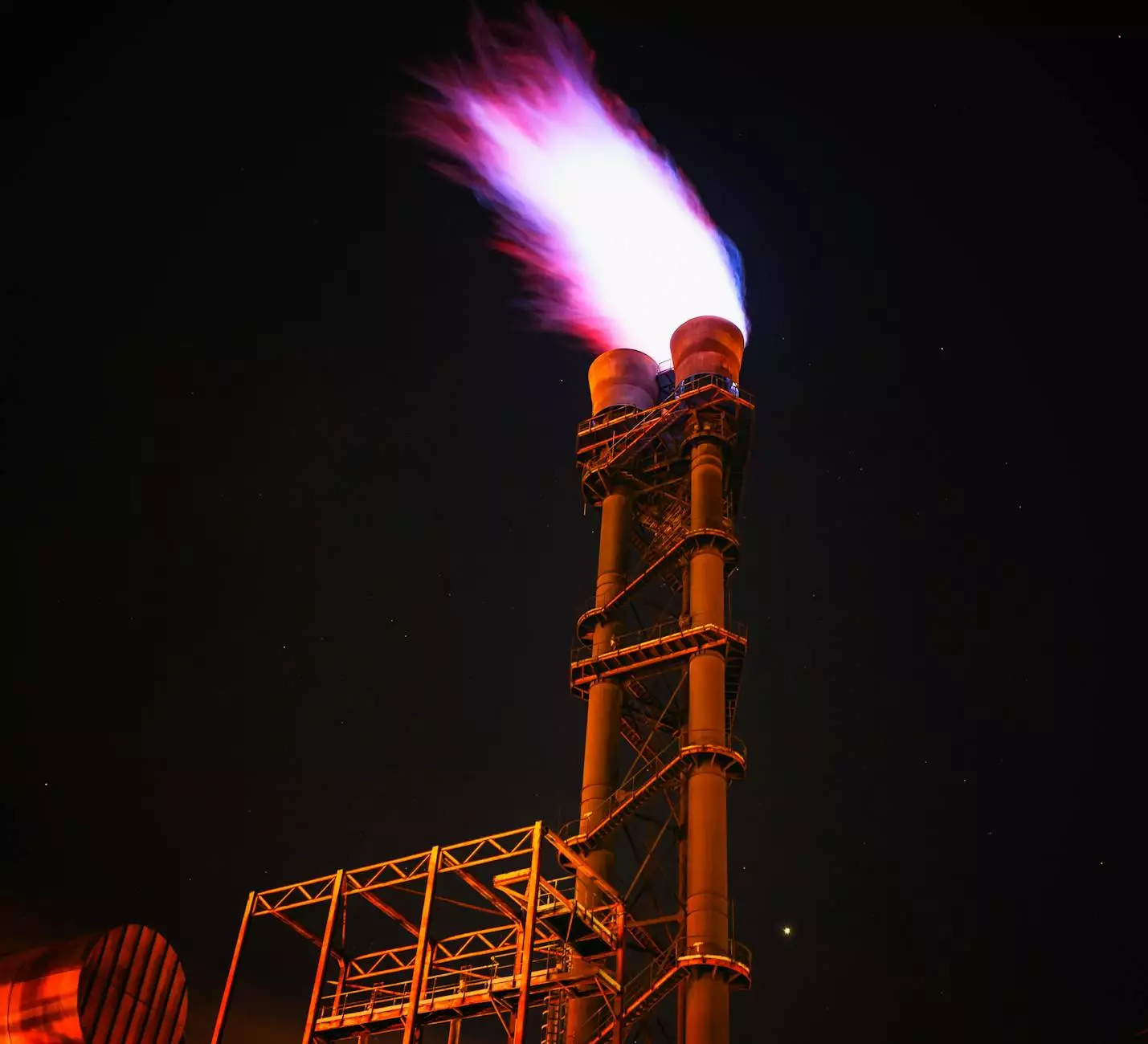Comprehensive Guide to Hospital Disinfectant Cleaners: Ensuring Prime Hygiene in Medical Facilities

Introduction: The Critical Role of Disinfectant Cleaners in Healthcare
In the realm of healthcare, maintaining a *sterile environment* is not just a standard procedure but a fundamental necessity that directly impacts patient safety, staff health, and the overall reputation of medical establishments. At the heart of achieving impeccable hygiene standards are hospital disinfectant cleaners. These specialized cleaning agents are meticulously formulated to eliminate dangerous pathogens, bacteria, viruses, and fungi, thereby curbing the spread of infections within healthcare settings.
Understanding the Importance of Hospital Disinfectant Cleaners
Hospital disinfectant cleaners are the frontline defense in infection control protocols. While regular cleaning removes dirt and organic matter, disinfectants specifically target microorganisms that may be resilient or invisible to the naked eye. The importance of these products cannot be overstated, especially in high-risk zones such as operating rooms, intensive care units, patient wards, and laboratories.
The Impact on Patient Outcomes and Safety
- Reduce Nosocomial Infections (Hospital-Acquired Infections)
- Protect Immunocompromised Patients
- Ensure Compliance with Healthcare Regulations
- Prevent Outbreaks of Contagious Diseases
The Role of Effective Disinfection in Medical Facilities
Effective disinfection not only eliminates existing pathogens but also prevents their proliferation. Hospital disinfectant cleaner products are tested and approved for broad-spectrum efficacy, ensuring that hospitals maintain clean, safe environments that meet strict health standards.
Types of Hospital Disinfectant Cleaners
Choosing the right hospital disinfectant cleaner depends on several factors, including the target microorganisms, surface materials, and application environment. Here are the major types:
- Alcohol-Based Disinfectants: These are rapid-acting agents effective against bacteria and viruses, ideal for surface disinfection in high-turnover areas.
- Chlorine Compounds: Including sodium hypochlorite, these are potent against a wide range of pathogens, especially effective in outbreak scenarios.
- Quaternary Ammonium Compounds: Mild yet effective disinfectants suitable for sensitive surfaces and equipment.
- Hydrogen Peroxide-Based Products: Environmentally friendly options with high efficacy and minimal residual toxicity.
- Phenolic Disinfectants: Used for specific applications, particularly where residual activity is desired.
Characteristics of a Superior Hospital Disinfectant Cleaner
Not all disinfectants are created equal. To provide maximum safety and efficacy, a hospital disinfectant cleaner must possess the following characteristics:
- Broad-Spectrum Efficacy: Effective against bacteria, viruses, fungi, and spores.
- Rapid Action: Short contact times facilitate efficient cleaning routines.
- Surface Compatibility: Safe for use on various materials, including plastics, metals, and fabrics.
- Residue-Free or Low Residue: Minimizes residual chemicals that could harm patients or staff.
- Environmentally Friendly: Biodegradable and low toxicity.
- Regulatory Compliance: Meets standards set by agencies like EPA, CDC, and WHO.
Best Practices for Using Hospital Disinfectant Cleaners
Effective disinfection hinges on proper application techniques. Here are key practices for healthcare providers and cleaning personnel:
- Pre-Clean Surfaces: Remove dirt, dust, and organic matter before disinfection.
- Follow Manufacturer Instructions: Use correct dilution ratios and contact times.
- Apply Adequate Coverage: Ensure all targeted surfaces are thoroughly wetted without excess pooling.
- Maintain Proper Contact Time: Allow disinfectants to stay on surfaces for the recommended period to ensure effectiveness.
- Use Appropriate Equipment: Utilize microfiber cloths, spray bottles, or mop systems suited for disinfectant application.
- Regularly Train Staff: Keep cleaning personnel updated on latest protocols and safety measures.
- Record and Audit Disinfection Processes: Maintain logs and perform routine checks to ensure compliance and efficacy.
Innovations and Trends in Hospital Disinfectant Products
The field of hospital disinfectant cleaners is continually evolving, incorporating advances in chemistry and microbiology. Some notable trends include:
- Nanotechnology: Use of nano-sized antimicrobial particles for enhanced activity and penetration.
- Electrostatic Sprayers: Application tools that wrap surfaces uniformly with disinfectant, reducing waste and improving coverage.
- Green Disinfectants: Environmentally sustainable products that minimize chemical hazards without compromising efficacy.
- On-Site Generation: Systems that produce disinfectants like chlorine dioxide on demand, maintaining freshness and potency.
The Role of Medalkan in Supplying Premium Hospital Disinfectant Cleaners
At medalkan.com, we are committed to providing high-quality, reliable medical supplies that uphold the highest standards of hygiene and safety. Our extensive range of hospital disinfectant cleaners are meticulously selected based on efficacy, safety, and environmental impact, ensuring healthcare providers have access to the best solutions for their infection control needs.
Why Choose Medalkan’s Disinfectant Products?
- Certified and Approved: All products meet international regulatory standards.
- Comprehensive Range: From hospital-grade disinfectants to specialized surface cleaners.
- Expert Support: Our team offers guidance on the optimal use of disinfectants for different hospital areas.
- Competitive Pricing: Ensuring hospitals can maintain budget-conscious disinfection protocols without sacrificing quality.
- Reliable Supply Chain: Consistent availability of disinfectants, ready to meet urgent demands.
Implementing Effective Infection Control Protocols
Incorporating the right hospital disinfectant cleaner into a comprehensive infection control strategy is vital. Here are essential steps to ensure your healthcare facility maintains superior hygiene standards:
- Audit Current Cleaning Procedures: Identify gaps and reinforce best practices.
- Develop a Disinfection Schedule: Regular and targeted disinfection routines for all critical areas.
- Train Staff Thoroughly: Emphasize the importance of proper disinfectant use and safety measures.
- Use the Right Disinfectants: Match product specifications with surfaces and microorganisms present.
- Monitor and Validate Efforts: Conduct microbiological testing where necessary to verify disinfection efficacy.
Conclusion: Elevating Healthcare Hygiene with the Right Disinfectant Solutions
The significance of hospital disinfectant cleaners in safeguarding health environments cannot be overstated. By selecting high-quality, effective disinfectants and adhering to rigorous application protocols, healthcare facilities can dramatically reduce infection risks and foster a safer, cleaner environment for patients, staff, and visitors alike.
As a trusted supplier, medalkan.com remains dedicated to offering the most innovative and reliable medical supplies, including the best hospital disinfectant cleaners on the market. Investing in superior disinfection solutions is investing in the health and wellbeing of everyone in your facility.
Contact Us
For inquiries, customized disinfectant solutions, or training support, reach out to our expert team today. Together, we can build a safer, healthier future for healthcare.









